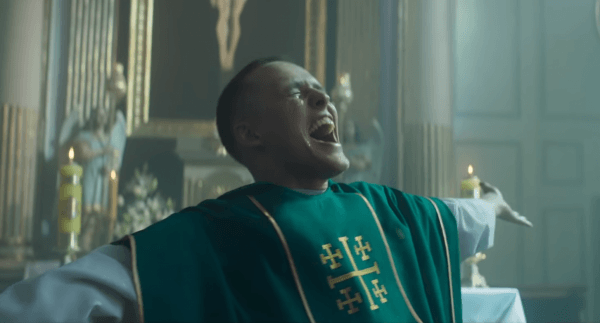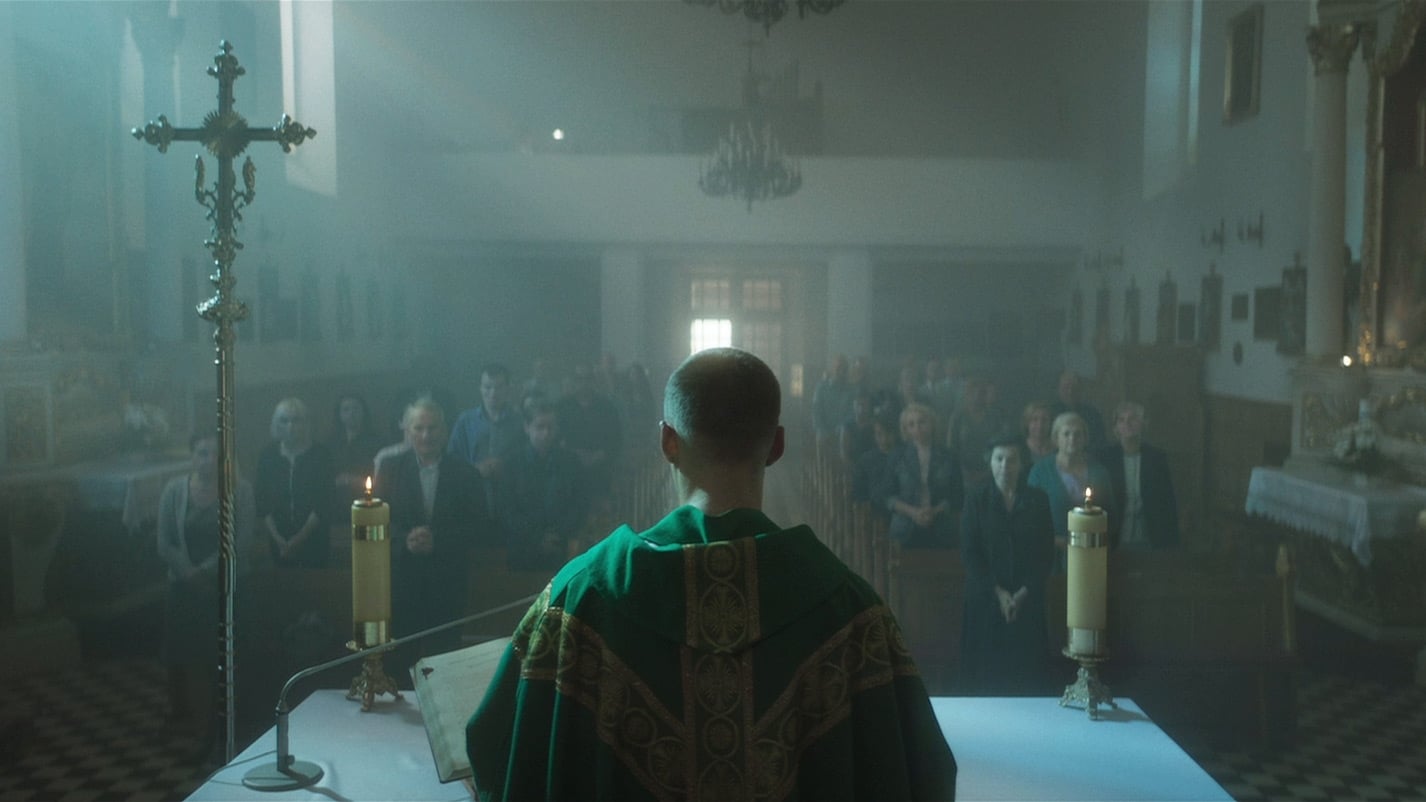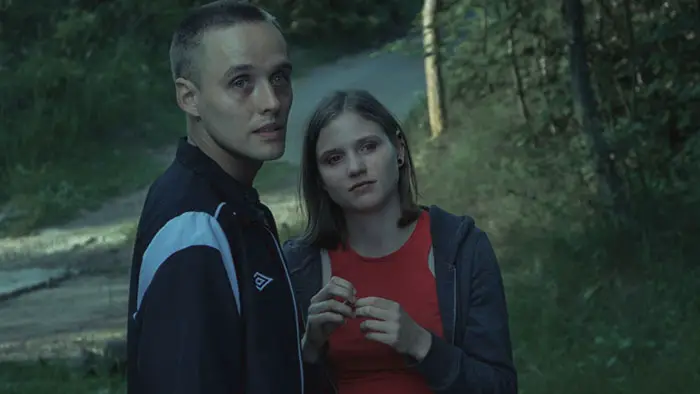Polish filmmaker Jan Komasa’s “Corpus Christi” is an engaging film about an enigmatic convict named Daniel (Bartosz Bielenia), haunted by internal conflict and past trauma and the shadow of his uncertain future after usurping as a Catholic priest. A raw drama that’s always gripping, “Corpus Christi” explorers the link between spiritual self-discovery and self-confession, the vulnerable yet complex scenario of masquerading as something you aren’t, and the nature of truth in the inner and outer self.
Komasa working from an original script by Mateusz Pacewicz is married by a notable and gripping performance by Belenia, playing an anguish-ridden character that echoes the lead character in Joachim Trier’s 2011 Norwegian film “Oslo, August 31st.”
Moreover, Komasa’s middlebrow sensibilities undermine the films potential edge, and a violent ending that is not only incongruous with the story’s tone but seems to belong to a completely different film, turning “Corpus Christi” into a deeply disturbing drama about finding faith and losing faith, a film that ends up playing out mostly as a human character study with a majority of the running-time.
Nominated for best foreign film at this year’s Oscars (where it stood no chance in winning over “Parasite”), “Corpus Christi” is a memorable film that echoes other spiritual crises films like Ingmar Bergman’s “Winter Light,” Robert Bresson’s “Diary of a County Priest,” and Paul Schrader’s “First Reformed.” All films involve tormented priests gripping with their livelihoods and faith.
Bielenia proves to be an actor with a lot of potential, I forecast a strong future for him. He plays Daniel, a troubled 20 year old who is put into “juvie”–which in Poland is where they incarcerate criminals in their 20s–Daniel ends up finding faith from the prison’s appointed priest. Daniel ends up being released from juvie, he ends up drifting into a small village where he cons himself as a priest named Tomasz. While at the local Catholic parish an elderly priest puts him up for the night. Suddenly the elderly man gets ill and must leave the village to the city hospitals, in which he asks Daniel, playing himself off as “Tomasz” to take over his sermon.
Daniel ends up discovering his own crises once the town holds the trauma of six teenagers that were run over by a drunken driver who recently dies. The family and community rejects the idea of his body being buried in the same cemetery as the dead teenagers. The widow of the wife endures a lot of persecution and harassment from the community, “Father Tomasz” attempts to reconcile the town and practice the Christian principles of forgiveness. He also ends up getting tempted by a local young woman in the village (Eliza Rycembel) who shows a great fondness and attraction towards him.

Komasa also maintains a strong cinematic language that honors the material, by using meticulous compositions and stark cinematography by Oscar nominated director of photography Pitor Sobocinski (Three Colors: Red). The use of framing and lighting truly heighten Daniel’s displacements and duality. Komasa goes for raw and complex, and here, he hardens the films delicateness in favor of a morally ambiguous, more emotionally involving framework. The approach should make “Corpus Christi” emotionally investing and to audiences that celebrate world cinema, at the price of not staying consistent to the films ironies and grace.












Sounds very promising, I will have to check it out.
I saw it and also liked most of it, I do agree it goes off on the deep end in the last 10 mins or so. I get the theme and point of it but it just feel unwarranted and perfunctory.
I liked it a lot
, some parts better than others.
each time i used to read smaller content that as well clear their motive,
and that is also happening with this post which I am reading at this place.
It’s awesome to visit this website and reading the views
of all mates concerning this article, while I am also eager of
getting experience. adreamoftrains web hosting
I just like the valuable info you supply in your articles.
I will bookmark your blog and test again right here frequently.
I’m quite certain I’ll be told lots of new stuff right here!
Good luck for the following!
Hi defactofilmreviews.com administrator, Good job!
Hello defactofilmreviews.com admin, You always provide key takeaways and summaries.
Hi defactofilmreviews.com owner, Keep up the great work!
To the defactofilmreviews.com administrator, Your posts are always well-timed and relevant.
Hello defactofilmreviews.com owner, Thanks for the well-structured and well-presented post!
Hello defactofilmreviews.com admin, Your posts are always well-supported by research and data.
Hi defactofilmreviews.com webmaster, Thanks for the well-organized and comprehensive post!
Dear defactofilmreviews.com admin, Thanks for the post!
To the defactofilmreviews.com webmaster, Your posts are always well-written and engaging.
To the defactofilmreviews.com webmaster, Thanks for the well-structured and well-presented post!
To the defactofilmreviews.com admin, Well done!
Dear defactofilmreviews.com admin, Your posts are always informative.
Hello defactofilmreviews.com webmaster, Excellent work!